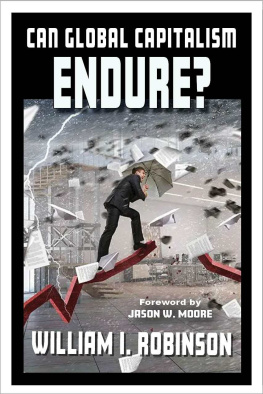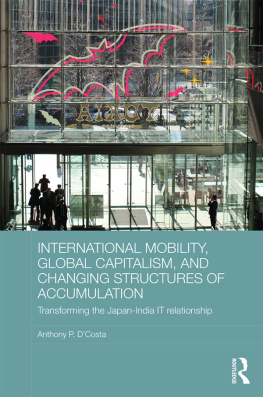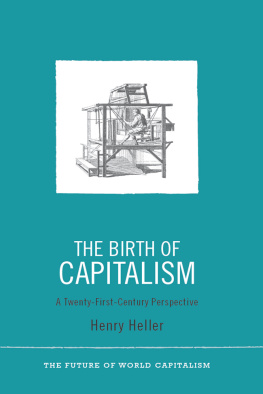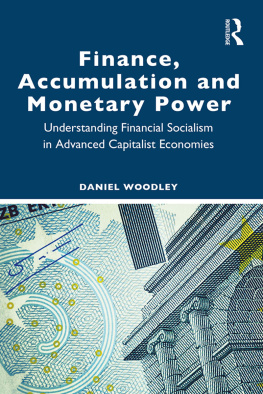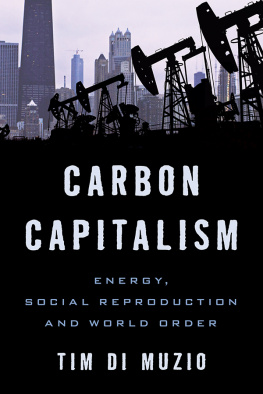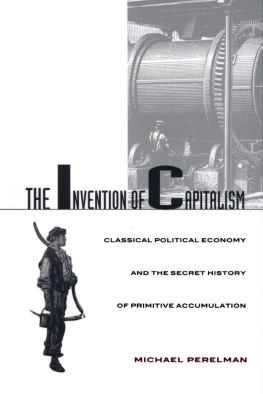
A Port in Global Capitalism
Through a study of the port district of Rio de Janeiro and its history, from its emergence as a major slave market to its modern-day incarnation as a hub of tourism, real estate and financial speculation, this book examines the different dimensions of the manner in which capitalism expands its global process of accumulation to incorporate spaces not yet integrated into chains of value production. As such, it sheds new light on the use of explicit non-economic violence on the part of capitalist expansion, in the form of colonial or imperial policies, plundering or legal forms of expropriation. As such, it will appeal to sociologists, historians, economists, legal scholars and political theorists with interests in capitalism and inequalities.
Srgio Costa is Professor of Sociology at Freie Universitt Berlin, Germany. Trained in Economics and Sociology in Brazil and Germany, his main research fields are social inequality, conviviality and difference and postcolonial theories.
Guilherme Leite Gonalves is Professor of Sociology of Law at the Rio de Janeiro State University, Brazil. He is interested in social theory, particularly in issues of law, social control and inequalities.
Entangled Inequalities: Exploring Global Asymmetries
Series Editor: Srgio Costa
Freie Universitt Berlin, Germany
https://www.routledge.com/Entangled-Inequalities-Exploring-Global-Asymmetries/book-series/ASHSER1413
Departing from classical approaches to the study of social inequalities between individuals and social classes within particular national settings, this series emphasises the production and reproduction of inequalities across borders as well as the multiplicity of categories whether race, sex or nationality amongst others according to which contemporary inequalities are shaped.
Entangled Inequalities constitutes a forum and a catalyst for discussing recent advancements in inequality research from a transnational, global and intersectional perspective, highlighting the fact that social inequalities are always the product of both global interpenetrations and of complex intersections between different social categorisations. The series therefore welcomes monographs and edited volumes across the social sciences that deal with inequalities from an entangled perspective with an intersectional or a transnational focus, or both.
Titles in this series
A Moment of Equality for Latin America?
Barbara Fritz and Lena Lavinas
Social Mobilization, Global Capitalism and Struggles over Food
Renata Motta
Reducing Inequality in Latin America
Mara Fernanda Valds Valencia
Global Entangled Inequalities
Elizabeth Jelin, Renata C. Motta, Srgio Costa
A Port in Global Capitalism
Srgio Costa and Guilherme Leite Gonalves
A Port in Global Capitalism
Unveiling Entangled Accumulation in Rio de Janeiro
Srgio Costa and Guilherme Leite Gonalves
First published 2020
by Routledge
2 Park Square, Milton Park, Abingdon, Oxon OX14 4RN
and by Routledge
52 Vanderbilt Avenue, New York, NY 10017
Routledge is an imprint of the Taylor & Francis Group, an informa business
2020 Srgio Costa & Guilherme Leite Gonalves
The right of Srgio Costa & Guilherme Leite Gonalves to be identified as authors of this work has been asserted by them in accordance with sections 77 and 78 of the Copyright, Designs and Patents Act 1988.
All rights reserved. No part of this book may be reprinted or reproduced or utilised in any form or by any electronic, mechanical, or other means, now known or hereafter invented, including photocopying and recording, or in any information storage or retrieval system, without permission in writing from the publishers.
Trademark notice : Product or corporate names may be trademarks or registered trademarks, and are used only for identification and explanation without intent to infringe.
British Library Cataloguing-in-Publication Data
A catalog record for this book is available from the British Library
Library of Congress Cataloging-in-Publication Data
Names: Costa, Sergio, 1962- author. | Goncalves, Guilherme Leite, author.
Title: A port in global capitalism: unveiling entangled accumulation in Rio de Janeiro/Sergio Costa, Guilherme Leite Goncalves.
Description: Milton Park, Abingdon, Oxon; New York, NY: Routledge, 2019. | Series: Entangled inequalities: exploring global asymmetries | Includes bibliographical references and index. | Identifiers: LCCN 2019027775 | ISBN 9780367340964 (hardback) | ISBN 9780429323898 (ebook)
Subjects: LCSH: Rio de Janeiro (Brazil)Economic conditions. | HarborsBrazilRio de Janeiro. | CapitalismBrazilRio de Janeiro.
Classification: LCC HC189.R4 C68 2019 | DDC 330.981/53dc23
LC record available at https://lccn.loc.gov/2019027775
ISBN: 978-0-367-34096-4 (hbk)
ISBN: 978-0-429-32389-8 (ebk)
Typeset in Times
by Deanta Global Publishing Services, Chennai, India
Contents
The port district was one of the areas most affected by the urban interventions demanded for the reception of the Olympics, which took place in August 2016 in Rio de Janeiro. Until the 1990s, the area was generally viewed by business groups, politicians, investors and the mainstream media as a devalued and degraded space, one which was isolated from the rest of the city. In fact, the entire area had low market value and was of little interest for real estate investments, commercial transactions and services. Even the port itself was of little significance when compared to other Brazilian ports. For all intents and purposes, the region was located outside the process of capitalist accumulation.
This situation changed dramatically in November 2009, about a month after Rio de Janeiro was chosen to host the Olympics, ahead of the finalists Tokyo, Madrid and Chicago. At the time, the choice of Rio de Janeiro as the first South American host of the Olympics in history raised the suspicion of specialists and competitors regarding the honesty of the process. More than a year after the Olympic Games took place, it became evident that these suspicions were not unfounded. In 2017, after a wide investigation known as Operation Unfair Play, the Brazilian police arrested the president of the Brazilian Olympic Committee, Carlos Nuzman, a lawyer and relatively successful former volleyball player. He was accused of illicit enrichment as well as coordinating the transfer of funds to purchase the votes of members of the International Olympic Committee (IOC) in favour of Rio de Janeiro in the weeks preceding the 2009 decision (Watts, 2017).
About a month after Rio de Janeiro was chosen to host the Olympics, the Porto Maravilha (Marvellous Port) project was made public. This project catalysed promotional campaigns and economic, political and cultural expectations, restructuring the entire port district for value creation. The former mayor of Rio de Janeiro, Eduardo Paes, triumphantly announced in the 18th edition of the Porto Maravilha magazine that advances had been made in the revitalisation and regeneration of the nearly 5 million square metres in the port district of the city. The mayor echoed the general tone adopted in the dissemination of the broad plan of urban intervention unleashed in 2009. To him, the project would regain for public use a central area of the city with immense historical importance, which had become a demographic vacuum after decades of degradation (Paes, 2015: 2).


